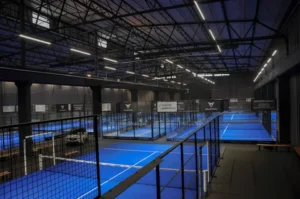The Most In-Demand Construction Project Manager Specialties in 2025
In 2025, South Carolina’s real estate and infrastructure sectors are booming, sparking a surge in demand for specialized construction project managers. These professionals play a pivotal role in coordinating complex development initiatives, ensuring that projects meet scope, time, and budgetary constraints. The evolution of the construction landscape influenced by technological advancements, environmental imperatives, and market-driven shifts has created distinct specialty roles within construction project management.
What Are Construction Project Manager Specialties?
Construction project manager specialties refer to focused roles that emphasize specific types of construction or phases within a project. These specialties extend beyond general project management and often require a blend of technical knowledge, regulatory familiarity, and leadership skills tailored to particular construction environments.
In 2025, the most in-demand construction project manager specialties include:
Green building and sustainability managers
Healthcare construction managers
Infrastructure and civil works managers
Residential and commercial real estate development managers
Technology-integrated construction managers
Which Specialties Are Leading the Field in 2025?
Green Building and Sustainability: Sustainability is no longer optional; it’s central to construction in 2025. Project managers in this field lead the charge in incorporating eco-friendly practices and achieving LEED certification. South Carolina’s focus on coastal resilience and green infrastructure heightens the value of this role.
Healthcare Construction Management: With South Carolina expanding its healthcare footprint, professionals in this specialty manage the creation and renovation of hospitals, clinics, and medical campuses. They navigate stringent health codes, integrate advanced medical technologies, and ensure that construction minimally disrupts care delivery.
Infrastructure and Civil Works: As federal funding pours into infrastructure improvements, managers in this area oversee highways, bridges, and utility upgrades. Their projects often span years and require coordination across multiple government entities.
Commercial Real Estate Development: Booming urban centers like Charleston and Columbia are fueling demand for managers skilled in professional real estate development. These specialists understand zoning laws, financial modeling, and stakeholder alignment.
Technology-Integrated Construction: Smart buildings and digital twin technologies are redefining construction norms. Project managers with specialties in integrating automation, IoT systems, and construction robotics are indispensable in 2025.
Who Is Hiring These Specialized Professionals?
Demand is widespread across both the public and private sectors. Key employers include:
Real estate development firms expanding urban and mixed-use developments
Healthcare systems building outpatient centers and hospital wings
State and municipal agencies executing civil infrastructure upgrades
Renewable energy companies constructing sustainable facilities
Construction tech startups introducing AI-driven building platforms
South Carolina’s economic development offices and business recruitment agencies are also incentivizing companies to relocate or expand, fueling even more project starts requiring expert management.
Where Are These Specialties Most In-Demand?
In South Carolina, high-growth areas such as Charleston, Greenville, Myrtle Beach, and Columbia are hotbeds for construction activity. Coastal regions require resilient infrastructure and sustainable development practices due to climate vulnerability. Inland, commercial expansions and suburban housing developments are on the rise.
Healthcare facilities are particularly expanding in mid-sized cities where population growth and aging demographics drive demand. Meanwhile, transportation projects are underway across the state, targeting highway expansions and port improvements.
Why Are These Specialties in High Demand Now?
Several 2025-specific factors are fueling demand for specialized construction project managers:
Sustainability Mandates: Federal and state-level regulations increasingly require sustainable building practices, creating need for green-focused managers.
Post-Pandemic Health Infrastructure: COVID-19 highlighted the need for resilient, scalable healthcare facilities.
Federal Infrastructure Funding: Recent federal packages have allocated billions for transportation and energy upgrades.
Urbanization: South Carolina cities are growing, spurring need for high-density housing and smart commercial spaces.
Tech Adoption: The rise of AI, BIM (Building Information Modeling), and automated construction tools demand managers who can lead digital transformation projects.
When Should Professionals Consider Specializing?
For those entering or already working in construction management, 2025 is the ideal time to specialize. The job market favors those with focused expertise, and continuing education programs are rapidly evolving to support this shift. Certifications in LEED, PMP with green construction focus, or healthcare construction from the American Society for Health Care Engineering (ASHE) are valuable credentials.
Mid-career professionals looking to transition should consider aligning with a specialty that matches regional demand, such as sustainable design in coastal areas or infrastructure development in upstate cities.
How Do Professionals Enter These Specialties?
Pathways into construction project manager specialties vary but typically include:
Targeted Education: Advanced degrees or certifications in green building, healthcare construction, or civil engineering management.
Experience in Niche Projects: Working on specialty projects provides invaluable hands-on knowledge.
Networking and Industry Events: Joining associations such as the Construction Management Association of America (CMAA) or the Urban Land Institute (ULI) can open doors to specialty opportunities.
Tech Training: Familiarity with BIM software, IoT systems, and project management platforms is essential for tech-integrated roles.
Employers are increasingly looking for project managers who can not only oversee construction but also advise on regulatory compliance, sustainability, and emerging technologies.
Whose Responsibility Is It to Foster These Specialties?
The push toward specialized construction project management is a collective effort:
Employers must offer career development and upskilling pathways.
Educational Institutions must align curricula with industry trends and future demands.
Government Agencies should provide incentives and funding for training in high-demand areas.
Professionals themselves must take initiative in pursuing relevant certifications and experience.
In South Carolina, workforce development programs, such as those through the Technical College System and the Department of Commerce, are essential in preparing talent for these roles.
The future of construction in South Carolina is built on specialization. As the real estate and infrastructure sectors evolve, construction project managers must adapt by honing expertise in areas that meet the moment. Whether it’s leading green initiatives, managing tech-enabled construction, or navigating complex healthcare builds, these specialty roles are at the forefront of progress. Explore your path in construction project manager specialties or professional real estate development to stay ahead in 2025.













